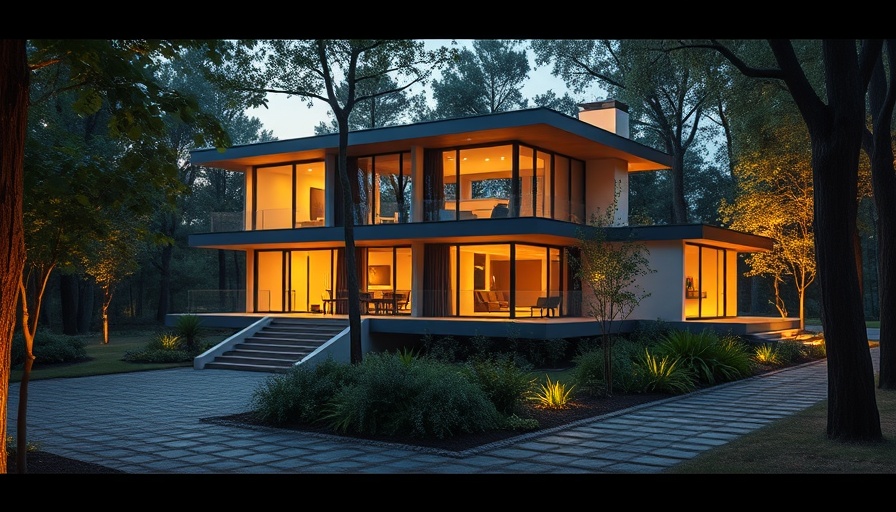
Understanding Your Home's Needs: Signs You Need Window Replacement
Replacing windows is not just about aesthetics; it's about improving your home’s functionality, energy efficiency, and overall comfort. Typical indicators that it's time to consider a replacement include difficulty opening the windows, excessive noise from outside, or a sudden spike in energy bills. These signs typically point to inefficiencies that can often be traced back to the state of your windows.
How Weather Impacts Window Longevity
The lifespan of windows can vary greatly depending on materials and local climate conditions. While wood windows could last between 20 to 50 years with proper maintenance, vinyl types might require more frequent replacements due to issues like seal failure. Homeowners in areas with extreme weather should take particular care, as conditions like intense heat can exacerbate wear on window materials.
Common Questions Homeowners Ask About Window Replacement
Homeowners often have many concerns before starting a window replacement project. Some common inquiries include:
- How do I know if moisture in my windows is a problem?
- What types of windows are best suited for my home?
- How can window replacement enhance my home's value?
Moisture issues, such as fogging between double panes or condensation inside the house, indicate that windows may be failing. If simple solutions like using dehumidifiers or improving ventilation aren’t helping, a replacement may be due.
The Financial Aspect: Costs vs. Value
Another significant consideration is the cost of window replacement versus the value it adds to your home. While high-quality windows may involve a higher upfront investment, they offer long-term savings through decreased energy costs. Additionally, well-installed windows can increase property value significantly—improving your selling prospects should you decide to list your home on platforms like Redfin or Zillow.
The Best Window Types Available
When considering new windows, homeowners often weigh the pros and cons of various materials. Here’s a quick guide:
- Vinyl: Economical and maintenance-free but can be less energy-efficient.
- Wood: Great for insulation but requires regular painting and upkeep.
- Fiberglass: Durable and energy-efficient, though priced higher.
- Aluminum: Sleek and easy to maintain but may not suit all climates.
Planning and Implementing Your Window Replacement
The window replacement process can be streamlined with informed planning. Here are essential steps:
- Determine your needs and budget - how many windows are being replaced?
- Research and select materials and styles that will suit your local climate.
- Hire a reputable contractor with solid references and reviews.
- Consider timing; spring or early fall is often best for installation.
Your Next Steps: Don't Hesitate to Seek Expert Advice
Engaging with a knowledgeable local real estate agent or contractor can help demystify the replacement process. They can offer insights specific to your home and local market conditions. Don't forget: understanding the complexities of window replacement can save you both time and money in the long run. Stay informed!
In conclusion, replacing your home's windows is a substantial investment that offers multiple benefits, from energy efficiency to boosting your property's market value. Make your decisions based on clear research and expert advice to maximize the advantages of your new windows. If you're contemplating this major home improvement, take the first step by consulting with a professional today!
 Add Row
Add Row  Add
Add 



Write A Comment